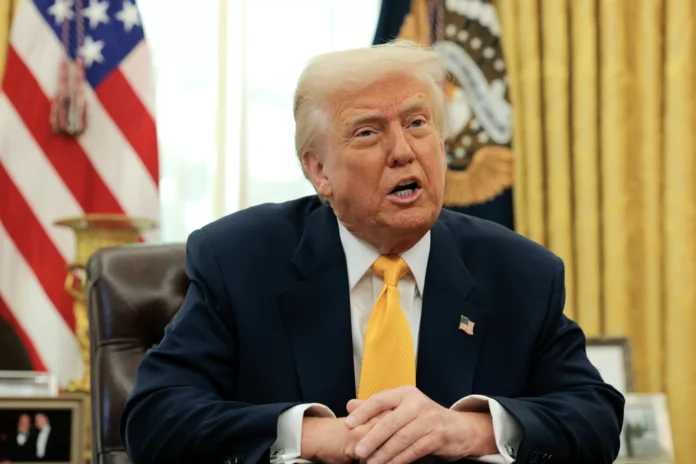Iran’s President Rejects Direct Negotiations with the U.S. over Nuclear Program
In a recent statement, Iran’s President Hassan Rouhani made it clear that the Islamic Republic will not engage in direct negotiations with the United States over its nuclear program. This announcement comes amid rising tensions between the two countries and the U.S.’s withdrawal from the Iran nuclear deal.
Speaking at a press conference, President Rouhani stated that Iran is not willing to sit down with the U.S. and negotiate over its nuclear program. He emphasized that the Islamic Republic is committed to peaceful and civilian use of nuclear energy and has no intention of developing nuclear weapons.
The President’s remarks come as the U.S. continues to impose sanctions on Iran, crippling its economy and causing hardship for its people. These sanctions were reinstated after the U.S. withdrew from the Joint Comprehensive Plan of Action (JCPOA), also known as the Iran nuclear deal, in 2018.
Despite the U.S.’s withdrawal, Iran has remained in compliance with the JCPOA and has repeatedly called on the remaining signatories – UK, France, Germany, Russia, and China – to fulfill their commitments under the agreement. However, the European countries have failed to provide Iran with the economic benefits promised in the deal, leading to Iran’s gradual withdrawal from its obligations.
In his statement, President Rouhani also criticized the U.S.’s unilateral approach and its attempts to isolate Iran on the international stage. He asserted that Iran is a peace-loving country and will not give in to pressure and threats.
The President’s rejection of direct negotiations with the U.S. is seen as a bold move to defend Iran’s sovereignty and national interests. It also sends a strong message to the U.S. that Iran will not back down despite the economic hardships it is facing.
Iran’s nuclear program has been a contentious issue for many years, with the U.S. and its allies accusing Iran of seeking to build nuclear weapons. However, Iran has consistently denied these claims and has reiterated its commitment to the peaceful use of nuclear energy under the supervision of the International Atomic Energy Agency (IAEA).
President Rouhani’s statement also comes at a time when tensions between Iran and the U.S. are at an all-time high. The U.S. has been increasing its military presence in the region, and there have been several incidents involving Iranian and American ships in the Persian Gulf.
Iran’s rejection of direct negotiations with the U.S. is a clear signal that the Islamic Republic will not be intimidated by the U.S.’s aggressive actions and will defend its sovereignty and national interests at all costs. It also shows that Iran is not willing to compromise on its nuclear program, which it sees as its right under international law.
In conclusion, President Rouhani’s statement reaffirms Iran’s commitment to peaceful nuclear technology and its refusal to engage in direct negotiations with the U.S. over its nuclear program. It also highlights Iran’s determination to stand up to the U.S.’s pressure and defend its sovereignty. It is now up to the international community to support Iran’s stance and work towards a peaceful resolution of the current tensions.

